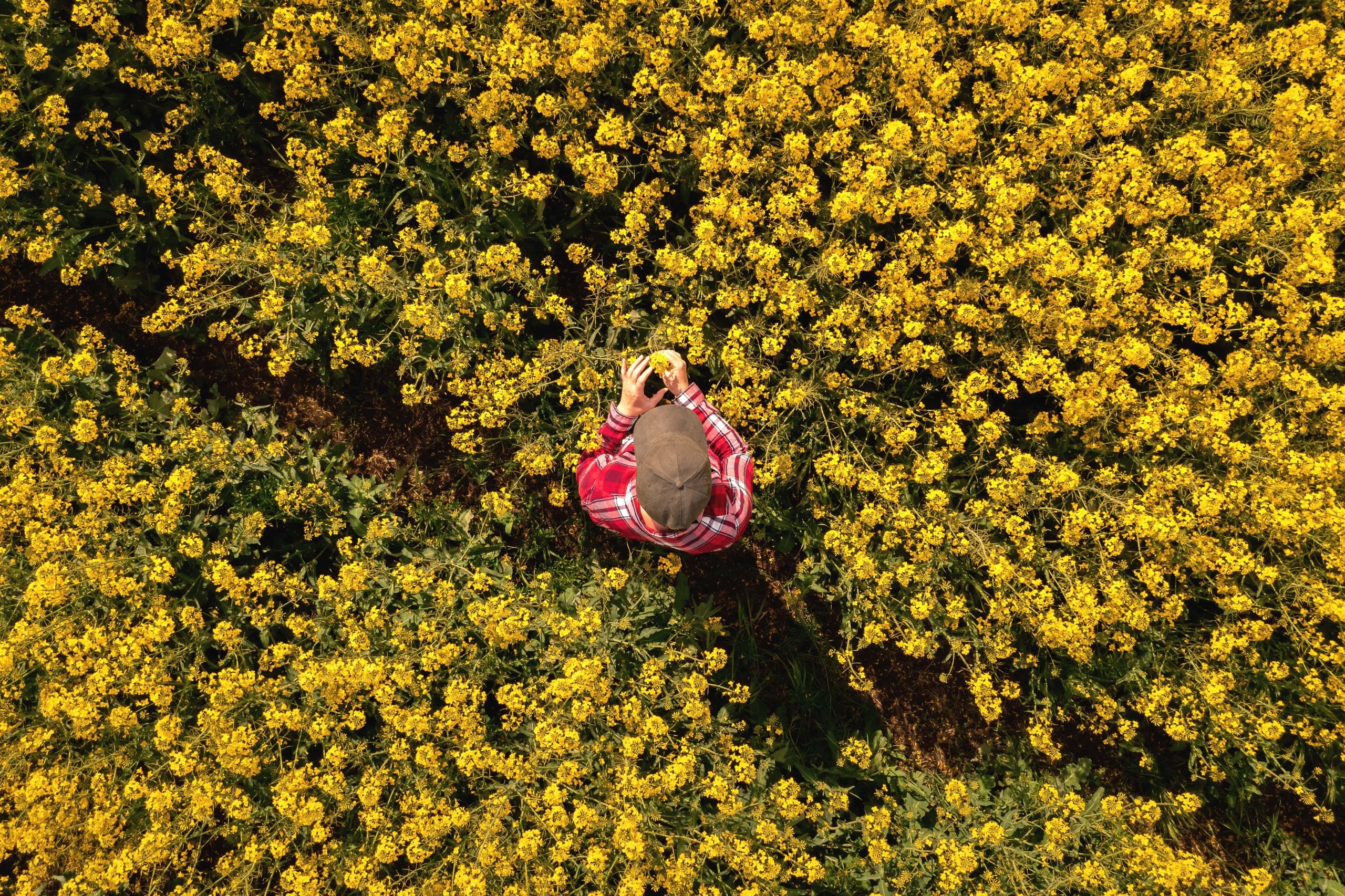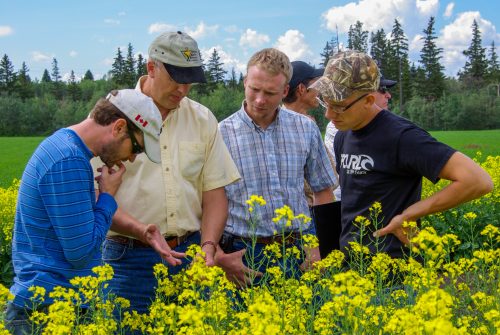
Research Programs
2025-2026 Research Funding Targets
Alberta Canola funds research that investigates the best ways to grow canola, finds solutions to pest management, and increases the demand for canola. The research we support must be innovative and provide long-term value to canola farmers in Alberta.
Canola farmers in Alberta have identified the following target areas to invest our research dollars:
1. Diseases
- Explore innovative and sustainable blackleg resistance strategies.
- Novel management techniques and technologies to effectively manage blackleg in tight canola rotations.
- Understand the genetics of clubroot resistance and develop durable resistance sources.
- Develop new techniques, tools and models to help predict and manage clubroot.
- Development of sclerotinia stem rot resistance in canola by incorporating resistance into parental lines and hybrids.
- Evaluate genetic resistance against verticillium stripe.
2. Abiotic Stresses
- Investigate practices that limit yield loss to abiotic stressors at specific growth stages (establishment, vegetative, flowering, seed fill).
- Discover practical water use efficiency improvements (ex. genetic, agronomic, irrigation management).
3. Weeds
- Develop practical controls for multiple-mode resistant weed biotypes.
- Weed monitoring and surveillance, modelling of weed species shifts in a changing climate.
4. Plant Nutrition
- Investigate plant nutrition impacts and interactions with abiotic and biotic stresses.
- Investigate nutrient management opportunities to improve yield stability with a changing climate.
- Determine strategies to manage soil microbiota and genomic marker development for increased nutrient use efficiency in canola.
- Investigate how nutritional elements impact plant health at key growth stages (establishment, vegetative, flowering, seed fill), and how this impacts the plant’s reaction to stressors.
5. Market Development
- Increase the demand for canola used for human consumption and fractionization, animal health and nutrition, and bio-industrial markets.
- Understand the impact of agronomic practices and plant stressors on canola quality (including measuring quality components of seed/oil/meal in proposed projects which address other research targets).
6. Insect Pests
- Identify and evaluate practical strategies to prevent and/or manage flea beetles and other important insect pests of canola.
Tips for Funding Applicants

Alberta Canola reviews around 80 relevant Letters of Intent (LOI) and 30 Full Proposals (FP) annually through the Agriculture Funding Consortium (AFC), Canola Agronomic Research Program (CARP) and Agriculture Development Fund (ADF) calls. Every five years we review additional projects for the federal Canola AgriScience Cluster.
Each year we allocate $1 million dollars for new research projects, and we heavily leverage our research investments with co-funders like SaskOilseeds, the Manitoba Canola Growers Association, RDAR, and WGRF.
If you are a researcher developing a project related to canola, please consider the following:
Our Review Process
- LOIs are reviewed by Alberta Canola research staff. To proceed to the FP stage, LOIs must involve canola in a meaningful way and address specific Alberta Canola research targets.
- All FPs are reviewed and rated by farmers, scientists, and industry. Final funding decisions are made by our farmer Research Committee.
Tips for Success
- Clearly communicate the specific and quantifiable outcome(s) of this project that will be adopted by canola farmers.
- Ensure that the language and resources in your application are clear and legible to all reviewers.
- Economic analyses and Return on Investment (ROI) for the proposed project are encouraged.
- What is the anticipated timeline for adoption and ROI for the end user?
- How will the knowledge and/or technology you produce with this project be accessible to farmers and related industry? Please expand beyond publishing papers and giving presentations.
- Ensure that your methodology is well-developed and clear for all audiences. Read ‘The Importance of a Treatment List’, which will help applicants understand what our Research Committee looks for in a project’s methodology section.
- Collaborate. Collaboration within and between disciplines will strengthen your ideas and the impact of your research findings.
